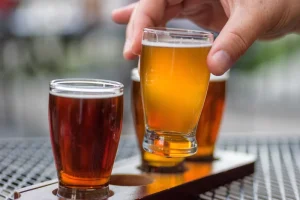Cognitive Behavioral Therapy for Relapse Prevention

Though relapse prevention plans are unique to each individual, there are specific components that are helpful to include in a final plan. Another essential thing to keep in mind is the reason one decided to quit in the first place. It can serve as a source of inspiration and help strengthen one’s resolve when it’s weakening. In addition, it can be helpful to weigh the pros and cons of quitting and even write them down as a part of the relapse prevention plan to regularly reinforce the decision.
- Attention should focus on renewing old interests or developing new interests, changing negative thinking patterns, and developing new routines and friendship groups that were not linked to substance use.
- If a person is in therapy during emotional relapse, the focus of therapy may pivot towards reinforcing the importance of self-care.
Examples of Creative and Therapeutic Relapse Prevention Group Activities
For one, it bolsters self-respect, which usually comes under siege after a relapse but helps motivate and sustain recovery and the belief that one is worthy of good things. Too, maintaining healthy practices, especially getting abundant sleep, fortifies the ability to ride out cravings and summon coping skills in crisis situations, when they are needed most. Reflect on what triggered the relapse—the emotional, physical, situational, or relational experiences that immediately preceded the lapse. Inventory not only the feelings you had just before it occurred but examine the environment you were in when you decided to use again. Sometimes nothing was going on—boredom can be a significant trigger of relapse.
Critiques of the RP Model

To start the process of becoming more mindful, simply notice what you are doing with no judgement. It can be helpful to write down one’s daily activities by tracking them with a smartphone to bring more awareness to what you are doing, thinking, and feeling. Following the initial introduction of the RP model in the 1980s, its widespread application relapse prevention skills largely outpaced efforts to systematically validate the model and test its underlying assumptions. Efforts to evaluate the validity [119] and predictive validity [120] of the taxonomy failed to generate supportive data. It was noted that in focusing on Marlatt’s relapse taxonomy the RREP did not comprehensive evaluation of the full RP model [121].
Abstinence Stage

These skills include deep breathing exercises, journaling, physical activities like yoga or sports, engaging in creative pursuits, or practising relaxation techniques. By developing a repertoire of healthy coping mechanisms, individuals can effectively handle the emotional and psychological challenges they encounter during recovery. These skills provide alternatives to substance use and empower individuals to navigate difficult moments while preserving their sobriety.
- This means surrounding yourself with people who actively support your recovery.
- It will give a warning and help preempt another potential slip-up and give an addict ample time to follow the relapse prevention plan when the early warning signs occur.
- Deep breathing, and the resulting increased oxygen flow, also encourages your body to exhale toxins.
- Also, setting boundaries allows individuals to say no to situations or people that may trigger cravings or jeopardize their progress toward sobriety.
Patient Care Network
- However, if you have a solid plan to confront such cravings, a relapse won’t be on the radar.
- Healthy coping mechanisms give people constructive ways to manage stress, cope with difficult emotions, and navigate the challenges of recovery.
It involves recognising that relapse is not a single isolated event but a multifaceted process, often comprising emotional triggers, mental struggles, and, eventually, a return to substance use. By comprehending these various stages, individuals in recovery can gain insight into the warning signs and vulnerabilities that may lead to relapse, enabling them to address these issues before they escalate proactively. This awareness empowers individuals to develop effective strategies for relapse prevention, ultimately improving their chances of maintaining long-term sobriety. Individuals recovering from various forms of addiction frequently encounter relapses that have gained acceptance as an almost inevitable part of the recovery process. However, the normalization of relapses can reduce the urgency for providers, patients, and support individuals to prevent them from occurring.
Also, a list of personalized and generalized warning signs before a potential slip-up is helpful. This may include things such as how one felt before relapsing, activities, warning signs such as increasing isolation, mood swings, a decline in self-care, developing cross addictions, and so on. Discover Recovery Treatment https://ecosoberhouse.com/ Center offers a range of relapse prevention group activity options led by healthcare professionals. These activities are designed to support people in recovery from alcohol and drug abuse. Talk to us today to find out more about our programs or complete our assessment form and we will get back to you.

This network typically includes family, friends, sponsors, and support groups. These individuals can provide emotional support, guidance, encouragement, and a sense of belonging, essential for maintaining long-term sobriety. Building and maintaining healthy relationships with people who understand the challenges of recovery can serve as a safety net during times of vulnerability. Regular communication with your support network can be particularly helpful, as it fosters a sense of accountability and provides a space to share concerns, successes, and setbacks. One of the best ways to do this is by following a technique called the relapse prevention plan. A relapse prevention plan is a system that outlines the steps the recovering drug abuser will take to avoid recidivism and the measures to be taken if recidivism does occur.

From Surveillance to Justice: Healing from Harm: Psychological Strategies for Coping with Medical Malpractice
- 1) Clients often want to put their addiction behind them and forget that they ever had an addiction.
- For individuals seeking long-term sobriety, relapse can be a disheartening reality.
- One cognitive strategy is to recite a mantra selected and rehearsed in advance.
- In addition to establishing a relapse prevention plan, individuals with a substance use disorder should have a treatment plan in place.
After all, relapse doesn’t mean you have failed; it means you need more support and treatment. Surround yourself with a strong support system of friends, family, and sober acquaintances. Additionally, join local recovery meetings to interact with peers in similar situations. Setting up a system to reach out if they sense you may be heading toward a relapse might also be helpful. This way, you can ensure that someone will be there to remind you of the benefits of sobriety and provide support.







